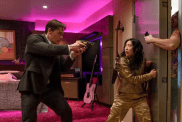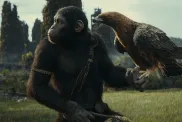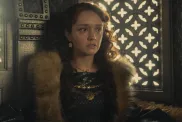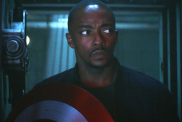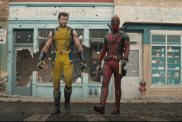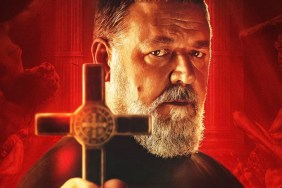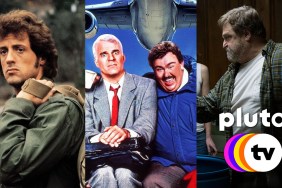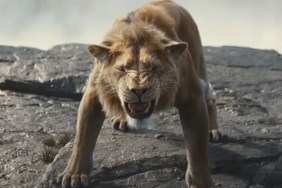
There is one major flaw when it comes to Rod Lurie’s remake of Sam Peckinpah’s Straw Dogs and that’s the lack of having a message or reason for telling such a violent and savage story. However, I still came away liking it, primarily because I love the original so much and outside of some setup differences this one doesn’t stray too far.
Peckinpah’s film starred Dustin Hoffman and Susan George as a couple moving to rural England in an attempt to get away from anti-war protests in America and settle down in the quiet countryside. In Lurie’s remake that thematic reasoning doesn’t exist, instead David and Amy Sumner (James Marsden and Kate Bosworth), the central couple, have moved out to Mississippi from Los Angeles to restore the Amy’s father’s cabin following his death. The cultural differences remain as does the antagonism that results in everything that is to come, but the ultimate descent of a pacifist man becoming everything he despises, and thinks he’s not, is lost.
Just as David and Amy arrive in town they sit down for a bite at one of Amy’s old haunts and her high school ex-boyfriend Charlie (Alexander Skarsgard) greets them with a few subtle comments, letting the audience know feathers are about to be ruffled. In fact, I thought Skarsgard nailed this role. He was a definite villain, but he isn’t overly so. Sure, he’s trying to torment David, a Hollywood screenwriter that obviously isn’t going to fit in with the deep South locals, but the way he goes about it isn’t overtly mean. He’s dismissive and subtle in his actions, it’s not a punch to the face, but instead an abandonment in the woods and Skarsgard plays it perfectly.
For a man with Charlie’s upbringing his reaction is a natural defense mechanism against David’s perceived superiority, as David and Amy roll into town in his $100,000 Jaguar (sort of a silly plot detail) and he struts around town in his khakis and white shoes without their shoelaces. The local fellas immediately smell fear and methodically pounce on the city boy who has no intention of getting into a fight and has a hard time standing up for himself. Straw Dogs finds its level of intrigue in the way these guys psychologically break David down and the question of whether he’ll ever fight back looms.
The film’s descent into all out chaos and hardcore violence comes organically and it wasn’t until after leaving the theater that I began searching for the reasons behind what I just watched. Interesting enough, one theme that remains is to question whether or not the characters were “asking for it,” largely in the case of Amy’s character, who along with Marsden is quite good, even if Marsden doesn’t create as pathetic a character as Hoffman created in ’71.
The performances aren’t in any way the problem, though. The biggest problem, as I’ve already slightly touched upon, is going to be a matter of motivation and reason. Sam Peckinpah’s original had several subtle moments that led to the film’s ultimate outcome, some are carried over, but most have been changed and changed in ways that don’t benefit the film.
If you think it’s unfair to compare this film as much as I have to Peckinpah’s original, I would typically tend to agree, but the two films are so similar that in the areas where they differ the differences are quite alarming. Yet, it doesn’t mean I didn’t like Lurie’s Straw Dogs. In fact, I still rather enjoyed it, particularly Skarsgard who delivers a calm and menacing character that even up to the end keeps you guessing.
This is going to be a tough film for people to watch, but Peckinpah’s ’71 feature still cannot be touched. If the release of this film means more people may find the original, which itself was based on the Gordon Williams novel “The Siege of Treacher’s Farm”, then I’m all for this latest remake, even though the argument as to whether or not it was really necessary is entirely valid.

